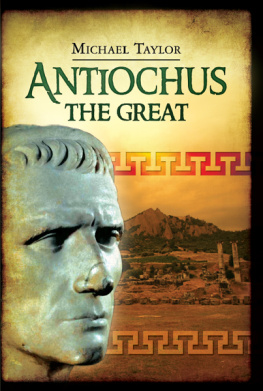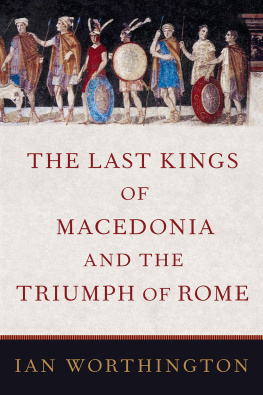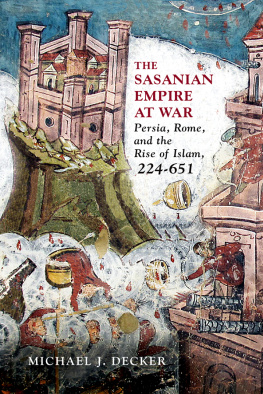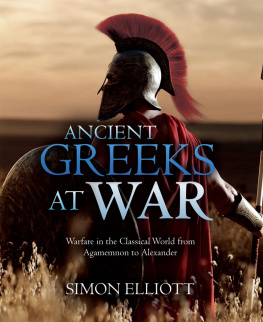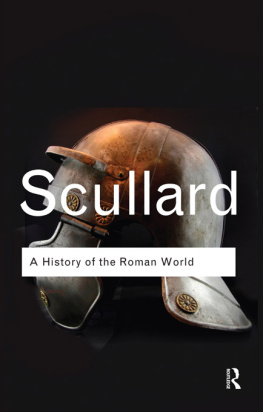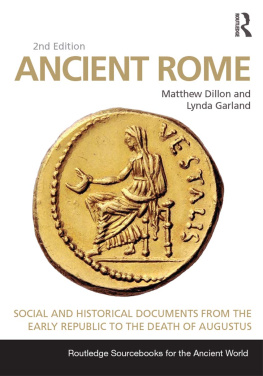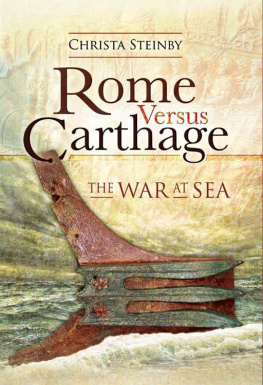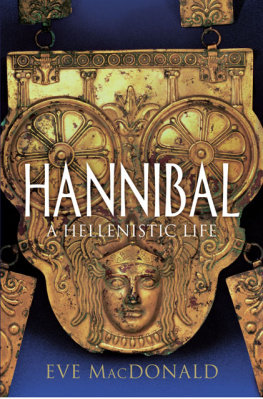ASHLEY AND PETER LARKIN SERIES IN GREEK AND ROMAN CULTURE
Soldiers and Silver
MOBILIZING RESOURCES IN THE AGE OF ROMAN CONQUEST
Michael J. Taylor

University of Texas Press
Austin
Copyright 2020 by the University of Texas Press
All rights reserved
First edition, 2020
Parts of previously appeared as State Finance in the Middle Roman Republic: A Reevaluation, American Journal of Philology 138, no. 1 (Spring 2017): 43180.
Requests for permission to reproduce material from this work should be sent to:
Permissions
University of Texas Press
P.O. Box 7819
Austin, TX 787137819
utpress.utexas.edu/rp-form
LIBRARY OF CONGRESS CATALOGING-IN-PUBLICATION DATA
Names: Taylor, Michael J. (Military historian), author.
Title: Soldiers and silver : mobilizing resources in the age of Roman conquest / Michael J. Taylor.
Description: First edition. | Austin : University of Texas Press, 2021. | Includes bibliographical references and index.
Identifiers:
LCCN 2020010953
ISBN 978-1-4773-2168-3 (cloth)
ISBN 9781477321690 (ebook)
ISBN 978-1-4773-2169-0 (library ebook)
Subjects: LCSH: Finance, PublicRome. | RomeHistory, Military.
Classification: LCC DG89 .T39 2021 | DDC 937/.05dc23
LC record available at https://lccn.loc.gov/2020010953
doi:10.7560/321683
Contents
Acknowledgments
THIS BOOK BEGAN LIFE AT THE UNIVERSITY OF CALIFORNIA, Berkeley, as a dissertation directed by Carlos Norea and with a committee of Erich Gruen, Todd Hickey, and Nathan Rosenstein, all of whom helped nurture the project to its successful completion and left an impact on the resulting book. In addition, I have benefited enormously from the generous feedback of many scholars who helped to refine the ideas presented here, whether in spirited conversations or in formal critiques: Jeremy Armstrong, Lisa Eberle, Arthur Eckstein, Michael Fronda, Franois Gauthier, Marian Helm, Roel Konijnendijk, Adam Littlestone-Luria, Toni aco del Hoyo, Laura Pfuntner, Nathan Pilkington, Jonathan Prag, Dominic Rathbone, John Rich, Andrew Riggsby, Saskia Roselaar, James Tan, and many others. Jim Burr and his professional team at the University of Texas Press transformed my manuscript into the finished product before you.
Like many in my generation, I owe a debt to my parents, who after my initial failures on the academic job market allowed me to move back home with a family in tow. Substantial revisions to this project were accomplished in my childhood bedroom while my mother watched my toddler son downstairs. Finally, I owe a special gratitude to my wife, Kelsey, who carried our family the entire time while also managing her own career as a scholar and a teacher. And much love to our little Caroline and Elliot, who distracted me greatly from the task at hand.

The Hellenistic Mediterranean. Generated via www.stepmap.com.
Introduction
IN THIS BOOK, I EXPLORE HOW WELL RESOURCES, SPECIFICALLY military manpower and fiscal revenues, explicate the outcomes of interstate warfare in the third and second centuries BCE and ultimately the startling success of Roman imperialism during this period.
The notion that resource superiority, especially military manpower, explains the rise of Rome is neither controversial nor particularly novel, going back to the Greek historian Polybius, writing in the second century BCE.
Ancient thinkers continued to view state power through the simple lens of money and manpower.
In theory, premodern empires were fundamentally military-tributary complexes, in which military forces occupied tributary territory, which was then exploited for taxes and materials to fund and supply those selfsame military forces. This instability contributed to a startling disconnect between manpower, money, and victory, with significant implications for our understanding of the phenomenon of Roman imperialism during the Middle Republic and the geopolitical dynamics of the Hellenistic Mediterranean more broadly.
A comparative approach is central to this study. Too often, research on Roman imperialism focuses myopically on Rome itself. In most instances, this is a necessary and forgivable evil intended to narrow the scope of scholarly inquiry. But the hazard of focusing solely on Rome lies in how such a perspective tends to create the false sense that Rome was the only power in the Mediterranean with agency, surrounded by neighbors who were little more than helpless, luckless, and doomed. In order to fully appreciate the arc of Roman imperialism, we must keep the imperial trajectories of Romes peer rivals fully in our field of vision. There were in fact five great powers in the Mediterranean in the third and second centuries BCE. To the west were two imperial republics: Rome and Carthage. To the east were the three great Successor dynasties that emerged following the death of Alexander the Great: the Antigonids, in Macedonia; the Ptolemies, centered on Egypt; and the Seleucids, who ruled a vast if volatile Near Eastern domain that stretched from Anatolia to the Hindu Kush.
Money and manpower were not the only manifestations of state power. Michael Manns useful if inevitably simplified taxonomy parses social power into military, economic, ideological, and political aspects, and even the ancients, as obsessed as they were with raw figures for troops and coins, were not ignorant of other, softer forms of power and how they might supplement raw military might. But for the purposes of comparison, men and money can be quantified, whereas political fealty and ideological resonance cannot. My goal is not quantification for its own sakeit is meaningless on its face to say that Rome had x ships, or Carthage y. But quantification is essential for making comparisonsit may be quite relevant to our understanding of the Hellenistic Mediterranean if Rome had 4x ships and 3y heavy infantry while Carthage had only x and y.
The great powers likewise posed existential threats to one another, as can be seen in the ultimate outcome: Rome destroyed and eventually annexed all of its peer rivals. But Rome was not the only great power to menace its peers. Seleucus I nearly annexed Macedonia in 281 BCE, before his untimely murder; Ptolemy III occupied the Seleucid heartland in Syria and Mesopotamia in the 240s; Antiochus IV was briefly crowned king of Egypt in Memphis in 169 or 168, suggesting that he aimed for the annexation of Egypt. In the next section I provide a brief overview of the five great powers, their basic political configurations, their geographic extent, and their strategic horizons.
THE GREAT POWERS
The Ptolemaic Kingdom
Ptolemy son of Lagus, one of Alexanders lieutenants, had established himself early on as the satrap of Egypt following Alexanders death, crowning himself king around 306 BCE. The Ptolemaic kings, or Ptolemies, controlled not only the Nile Valley but also Cyrene, Cyprus, and scattered territorial holdings around the Aegean, including much of coastal Asia Minor and Thrace. Until about 200, Koil (Hollow) Syria, extending between the Lebanon and Anti-Lebanon mountains down to the rift valley of the Jordan River, was a Ptolemaic province, of key importance not only for its agricultural and timber resources but also for controlling the main invasion route into Egypt. The Ptolemies capital city and dynastic seat was Alexandria, founded by Alexander himself and home to the conquerors tomb, where his mummified corpse formed the centerpiece around which the Ptolemaic kings mummies were subsequently arranged.


